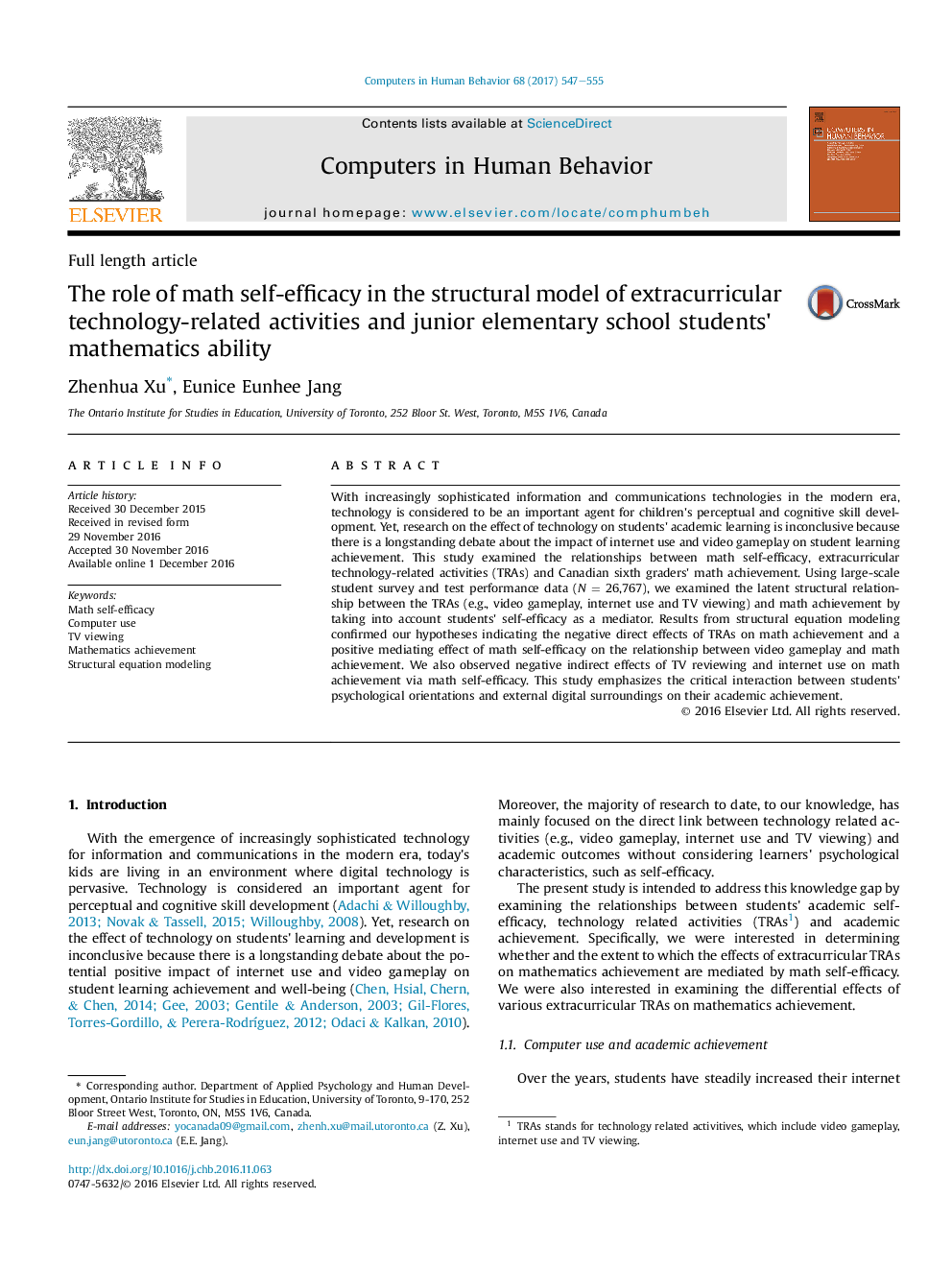| کد مقاله | کد نشریه | سال انتشار | مقاله انگلیسی | نسخه تمام متن |
|---|---|---|---|---|
| 4937713 | 1434623 | 2017 | 9 صفحه PDF | دانلود رایگان |
عنوان انگلیسی مقاله ISI
The role of math self-efficacy in the structural model of extracurricular technology-related activities and junior elementary school students' mathematics ability
ترجمه فارسی عنوان
نقش خودکارآمدی ریاضی در مدل ساختاری فعالیت های مرتبط با فناوری های اضافی و توانایی ریاضی دانش آموزان مقطع ابتدایی
دانلود مقاله + سفارش ترجمه
دانلود مقاله ISI انگلیسی
رایگان برای ایرانیان
کلمات کلیدی
خودکارآمدی ریاضی، استفاده از کامپیوتر، مشاهده تلویزیون، دستاوردهای ریاضی، مدل سازی معادلات ساختاری،
موضوعات مرتبط
مهندسی و علوم پایه
مهندسی کامپیوتر
نرم افزارهای علوم کامپیوتر
چکیده انگلیسی
With increasingly sophisticated information and communications technologies in the modern era, technology is considered to be an important agent for children's perceptual and cognitive skill development. Yet, research on the effect of technology on students' academic learning is inconclusive because there is a longstanding debate about the impact of internet use and video gameplay on student learning achievement. This study examined the relationships between math self-efficacy, extracurricular technology-related activities (TRAs) and Canadian sixth graders' math achievement. Using large-scale student survey and test performance data (NÂ =Â 26,767), we examined the latent structural relationship between the TRAs (e.g., video gameplay, internet use and TV viewing) and math achievement by taking into account students' self-efficacy as a mediator. Results from structural equation modeling confirmed our hypotheses indicating the negative direct effects of TRAs on math achievement and a positive mediating effect of math self-efficacy on the relationship between video gameplay and math achievement. We also observed negative indirect effects of TV reviewing and internet use on math achievement via math self-efficacy. This study emphasizes the critical interaction between students' psychological orientations and external digital surroundings on their academic achievement.
ناشر
Database: Elsevier - ScienceDirect (ساینس دایرکت)
Journal: Computers in Human Behavior - Volume 68, March 2017, Pages 547-555
Journal: Computers in Human Behavior - Volume 68, March 2017, Pages 547-555
نویسندگان
Zhenhua Xu, Eunice Eunhee Jang,
